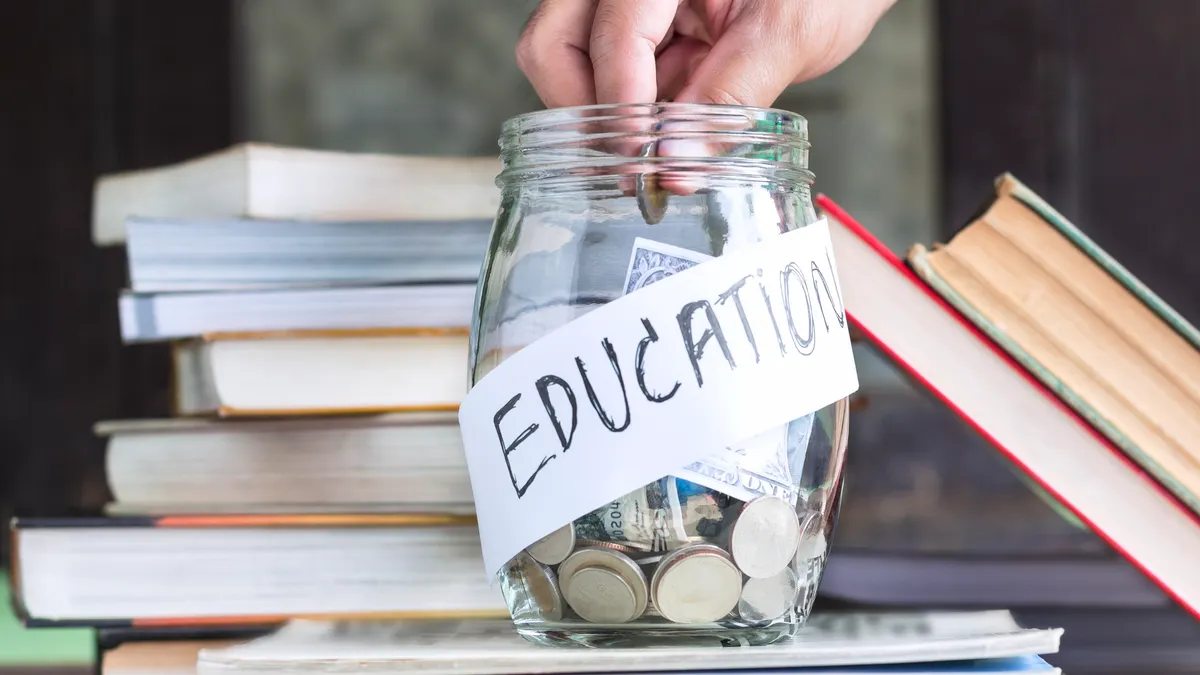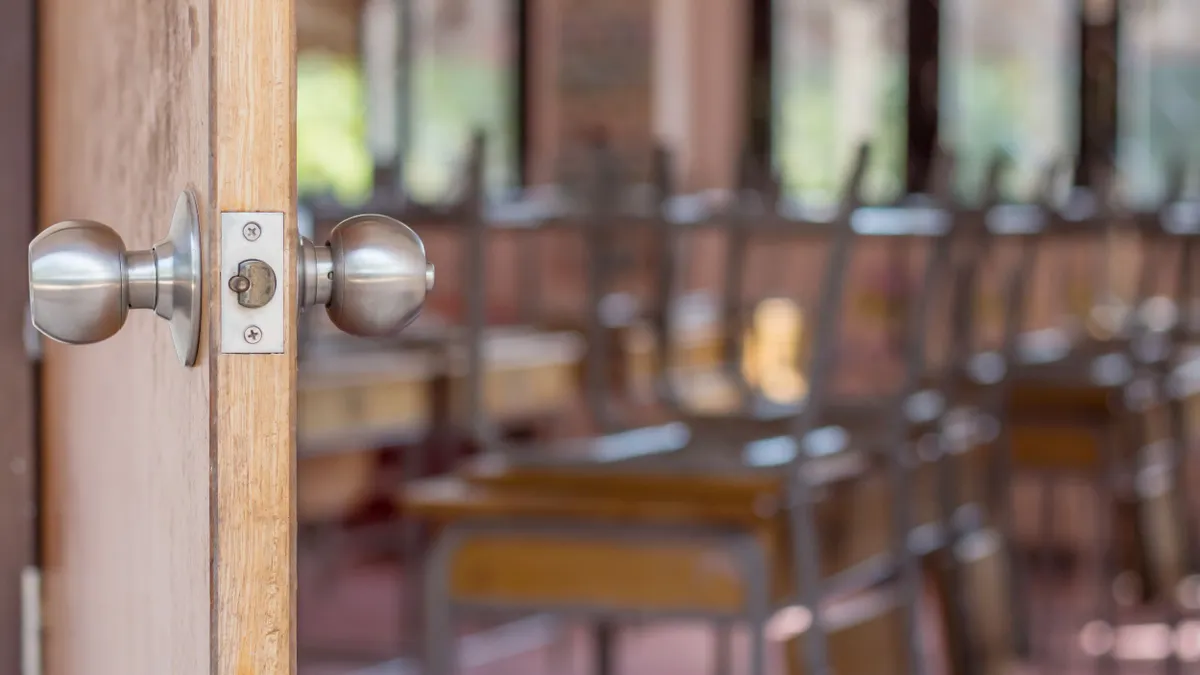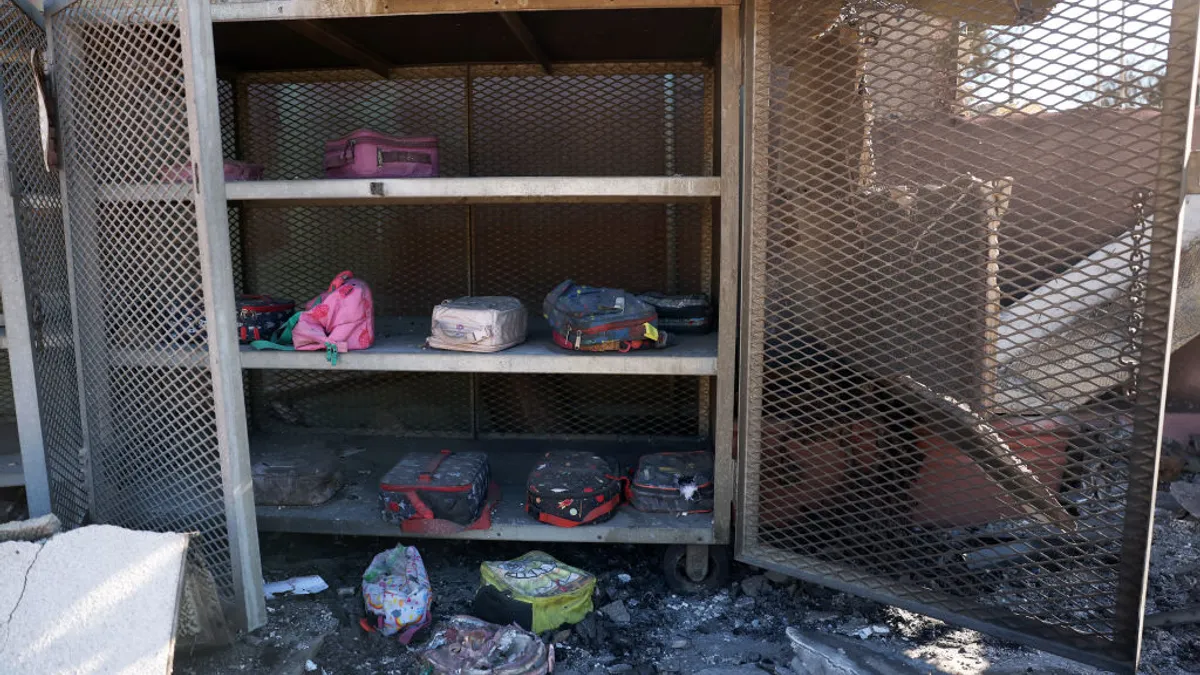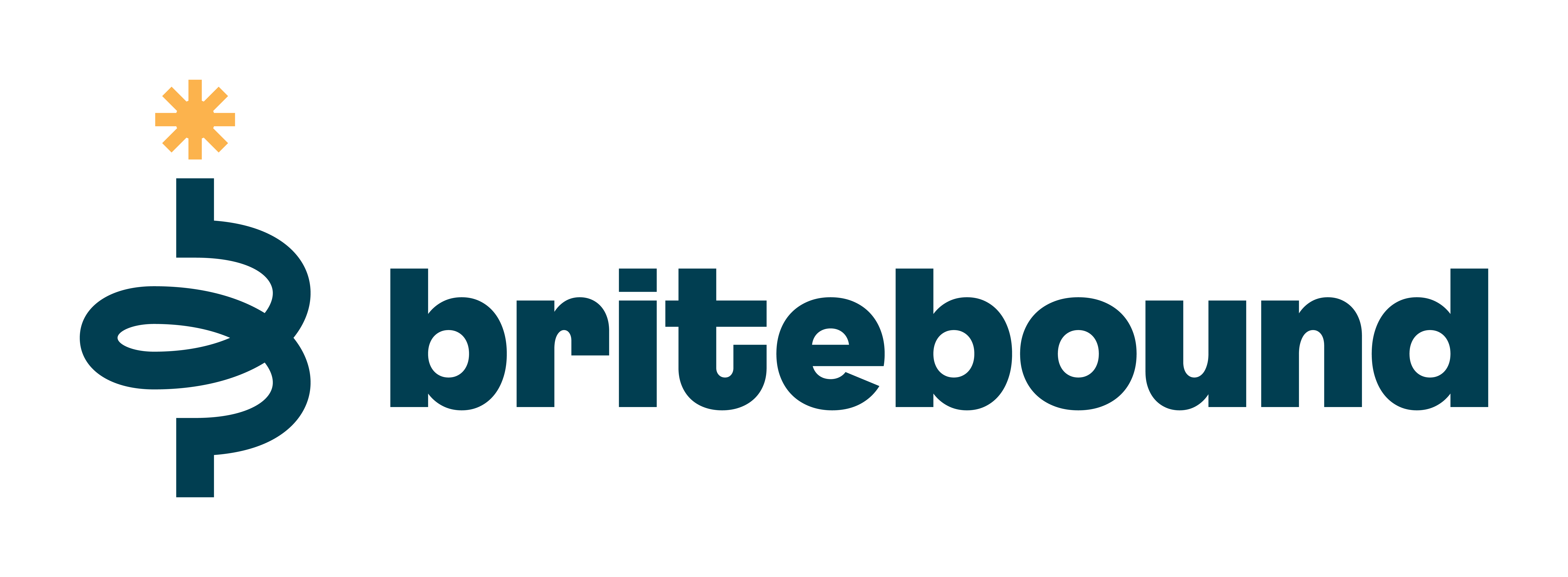The rapid rise in state-led private school choice programs over the past three years, coupled with a new federal tax incentive expected to boost access to private schools, has many public school advocates concerned about the future of the traditional public school model.
Diminished funding and reduced enrollment for public schools top their concerns, along with anxiety over educational equity and accountability for private schools.
“Public funds belong in public schools, which are open to all and educate 90% of America’s students," said Americans United for Separation of Church and State in a July 3 statement after Congress passed the Republican-led “One Big, Beautiful Bill.” The measure includes the first federally funded private school choice program to be offered nationwide.
"Private school vouchers don’t just trample our religious freedom — they also don’t work, breed fraud, foster discrimination, and enrich the wealthy," the group said.
On the other hand, school choice supporters are energized about the expansion of publicly funded private school options, saying frustration has been building for decades over disappointing academic outcomes for public school students and limited educational options for all.
"My hope and my expectation is that people will see to the will of these communities who want something. They're not asking for anything that is outrageous or untoward. They're just asking for justice and equity as it relates to education," said Darius Jones, founder and executive director of the National Black Empowerment Council and senior advisor to the National Black Empowerment Action Fund.
The fund, which is supportive of private school choice, is an advocacy organization for economic, social and educational advancement in Black communities.
Publicly funded private school choice programs have been around for many decades in various states and traditionally were targeted for certain populations, such as students with disabilities and students from low-income families.
That is changing.
More states are offering private school choice options that are open to all students. In fact, just three years ago, only two states — Arizona and West Virginia — offered universal private school choice. Now, 10 states do so, according to a recent report by FutureEd, an independent think tank at Georgetown University.
Texas and West Virginia, among other states, are also expected to launch universal private school choice programs in the 2026-27 school year. That’s when about half of the nation’s students would become eligible to attend a school of their choice using public funds, according to FutureEd.
The number of students using universal private school choice options ballooned by 40% in just one year — from 584,000 students to 805,000 between the 2023-24 and 2024-25 school years. Before that, in 2022-23, only 64,022 students participated, FutureEd said.
Data from EdChoice, a pro-school choice organization, shows that 35 states have some type of private school choice program. Collectively, those programs serve about 1.3 million students, according to EdChoice.
Universal school choice participation expands rapidly
Federal school choice: The next frontier
The "One Big, Beautiful Bill" enacted on July 4 provides a permanent federal tax incentive program to generate funds for families’ K-12 educational expenses. Those expenses could be:
- Private school tuition at secular and religious schools.
- Homeschooling items, such as curriculum and other materials.
- Fees, tutoring, educational therapies, transportation, technology and other charges at public or private schools.
A spokesperson for the U.S. Department of Education referred questions about the status of any regulations or guidance for the federal private school choice program — known as the Educational Choice for Children Act — to the U.S. Treasury Department. That agency may take the lead in implementing the program given its design as a tax credit incentive.
The Treasury Department didn't respond to multiple requests for more information about the process.
The House has passed the One Big, Beautiful Bill, containing my Educational Choice for Children Act!⁰⁰My provision helps families who feel trapped in a failing school afford to send their child to a school that’s right for them. It's about giving parents choice and kids a… pic.twitter.com/4ZuEzQ6bSG
— U.S. Senator Bill Cassidy, M.D. (@SenBillCassidy) July 3, 2025
Under ECCA, any taxpayer who donates up to $1,700 annually to a scholarship-granting 501(c)(3) charity organization would be eligible for a 100% federal income tax credit for their contribution.
Scholarship-granting organizations would then independently verify a student's eligibility for a scholarship, determine award amounts and distribute the funds to private schools, public schools, vendors and providers of related programs and services.
Taxpayers can begin making contributions to scholarship-granting organizations beginning in 2027. Donor parents will not be able to direct their contributions to their child’s education expenses.
While the program is open nationwide, states need to opt in for scholarship-granting organizations and students to be able to participate.
It remains to be seen how many states will opt in or decide not to participate. The federal government has not yet provided guidance on how to do either.
Norton Rainey, CEO of ACE Scholarships, a Denver-based nonprofit scholarship-granting organization, said his organization will begin focusing on encouraging governors to opt in.

Over the past 25 years, ACE Scholarships has managed more than 110,000 scholarships worth a total of $330 million across 13 states. The organization provides partial scholarships of up to $4,000 per year with the expectation that parents will also contribute to educational costs, Rainey said. The average annual tuition of the private schools ACE works with is about $10,000.
"We want every kid, regardless of who they are, to live the American dream," Rainey said. "And education is a great equalizer."
The lobbying of governors to opt into the program is underway by other supporters, including Florida Sen. Rick Scott, a Republican who wrote to all 50 governors on July 18, saying the "life-changing program is a win-win for governors, state budgets, and — most importantly — families."
Some states may find that deciding to opt in or out is not so simple if their state constitutions explicitly forbids using taxpayer money for private school tuition.
"We want every kid, regardless of who they are, to live the American dream."

Norton Rainey
CEO of ACE Scholarships
In addition to seeking buy-in from governors, ACE will reach out to potential donors to encourage their participation. According to the Institute on Taxation and Economic Policy, there is no other charitable giving structure in the U.S. that allows this type of dollar-for-dollar tax incentive.
ITEP’s analysis of Internal Revenue Service data predicts that more than 138 million people could contribute to a scholarship-granting organization in 2027, although it's unlikely all would do so, said the institute.
Voucher opponents, meanwhile, are trying to bolster support for public schools. The Southern Poverty Law Center has released six resources explaining why support for public schools matters.
At a forum supporting public education held July 24 in Washington, D.C., Denise Forte, president and CEO of The Education Trust, said, "We are witnessing a coordinated dismantling of public education. The goal is to make American society devoid of diversity and with unequal access to a quality education."
Even some private school organizations that generally support the new tax incentive, such as the National Catholic Education Association, are pointing out that it does not offer religious liberty protections or guarantee a participating private school's autonomy and independence.
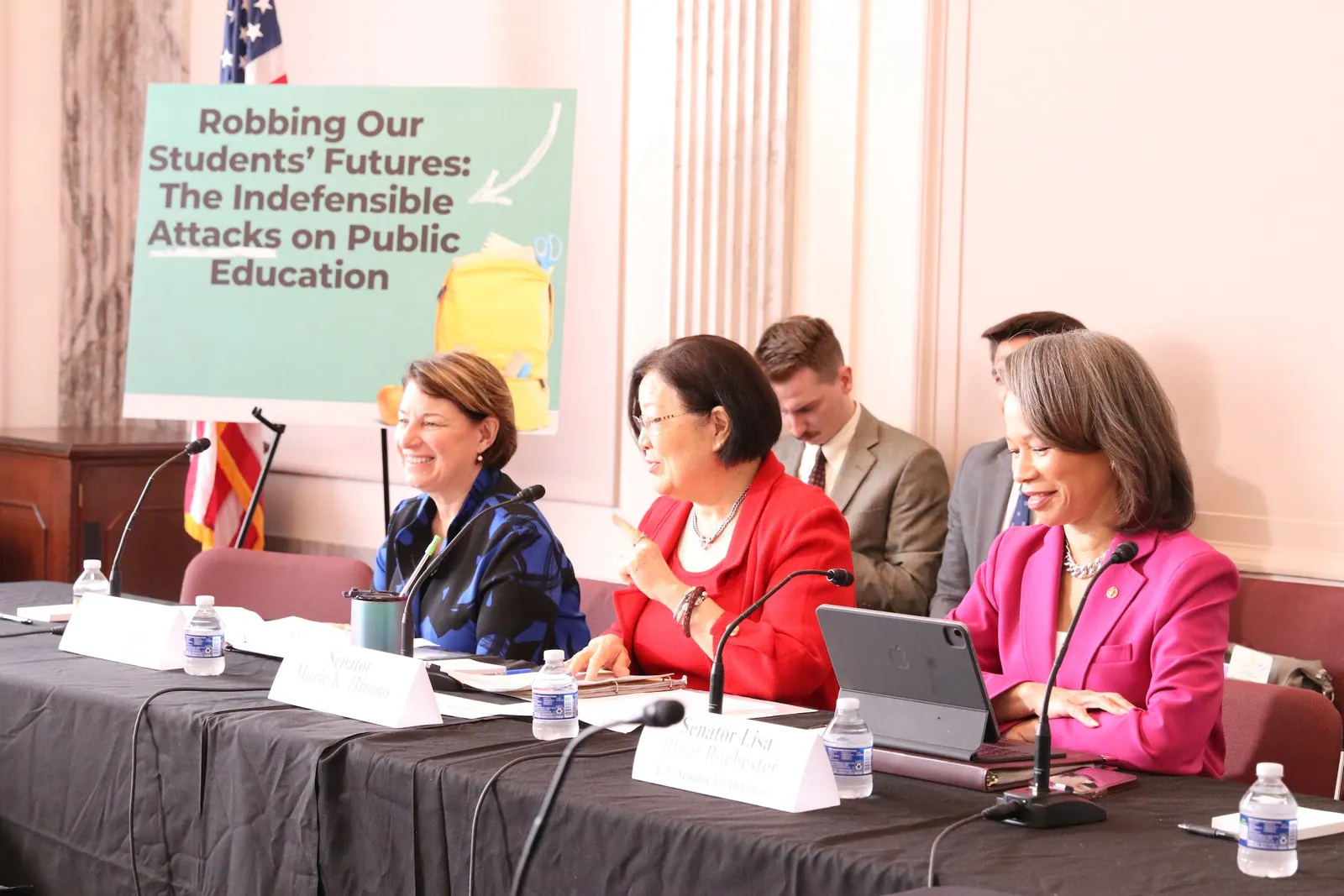
How choice is impacting public schools
The FutureEd analysis of how state-level private school choice programs are impacting public school systems found a mixed bag of benefits and challenges.
In the first year of a state-level universal private school choice program, public charter and traditional schools didn't report significant loss of funding or enrollment. That's because most scholarship recipients were already attending private schools.
But as more students switch from public to private schools using taxpayer-funded scholarships, public school districts lose out on per-pupil funding. Some states, like Iowa, have anticipated this and send a $1,200 stipend to the public school system for each student that attends a private school. But most states with universal choice programs don't do this, FutureEd said.
The local financial and enrollment impacts, FutureEd noted, vary depending on a district's financial reliance on state funds and its enrollment trends. Arizona's Mesa School District, for example, has 1,600 fewer students now than in 2017 due to participation in the state-sponsored education savings accounts program, according to FutureEd. About 400 of those students transferred out just in the past year.
Gilbert School District, also in Arizona, has lost more than 700 students since 2017 because of school choice, nearly 200 of them in the last year, FutureEd reported.
"We are witnessing a coordinated dismantling of public education."

Denise Forte
President and CEO of The Education Trust
But there are also districts that are going on the offense by offering fee-based classes, extracurricular activities and other programming eligible for reimbursement from choice programs, the report noted.
The state-level growth, paired with the new federal tax incentive supporting school choice, means publicly funded private school choice will likely continue to expand. Opponents, however, have promised to continue pushing back.
One way is through the courts.
In April a Utah district court judge held the state's universal private school choice program to be unconstitutional because it is "neither a social services program nor a program limited to supporting children with disabilities."
And just last month, a Franklin County judge struck down Ohio's EdChoice private school voucher program as unconstitutional. Republicans in the state will appeal the decision, according to several news organizations.
The court cases are being watched closely by public school advocates.
“Ohio joins the growing number of state courts across the nation that have invalidated harmful and discriminatory private school voucher programs,” said Patrick Cremin, staff attorney with the Education Law Center, in a July 17 statement after the ruling.
The decision "reaffirms the primacy of public schools in Ohio," added plaintiffs' attorney Mark Wallach of McCarthy, Lebit, Crystal & Liffman, noting that 85% of Ohio students attend public schools, Wallach said "the rapidly expanding EdChoice voucher program" has caused schools in the state to be underfunded.


